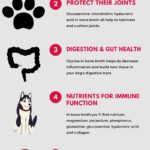Can Dogs Get The Stomach Flu From Humans
Dogs are man’s best friend, and we love them unconditionally. They are always there for us, running to the door when we come home from a long day at work, and snuggling with us on the couch during movie nights. However, as much as we love our furry friends, we sometimes forget that they have different biological systems than us. One question that often comes up is whether dogs can get the stomach flu from humans.
The answer is both yes and no. Dogs do not get the human form of stomach flu, which is caused by a virus called norovirus. However, dogs can contract similar illnesses that cause vomiting and diarrhea, such as gastroenteritis or food poisoning.
Gastroenteritis in dogs is usually caused by consuming something that their body cannot handle, such as spoiled food or foreign objects like toys or bones. The symptoms of gastroenteritis in dogs are similar to those in humans with stomach flu: vomiting, diarrhea, abdominal pain, and loss of appetite.
While it may be tempting to share your food with your furry friend or let them lick your plate after a meal, this behavior can lead to food poisoning in dogs. Foods that are safe for humans can be toxic for dogs, including chocolate, grapes, onions, garlic, and avocados.
It is essential to remember that while some human medications may alleviate symptoms in people with stomach flu, they can be dangerous for dogs. Over-the-counter medications like Pepto-Bismol contain salicylates (the active ingredient in aspirin), which can harm your dog’s digestive system.
If you suspect your dog has eaten something they shouldn’t have or is showing signs of gastroenteritis or food poisoning-like symptoms, it is crucial to seek veterinary care immediately. Your veterinarian will perform diagnostic tests and provide appropriate treatment recommendations based on your pet’s specific needs.
In conclusion, while dogs cannot contract the human form of stomach flu, they can suffer from similar illnesses that cause vomiting and diarrhea. To keep your furry friend safe and healthy, it is essential to monitor their diet closely, avoid sharing human food or medications with them, and seek veterinary care if you notice any concerning symptoms. After all, our dogs deserve the same level of care and attention as we do!



